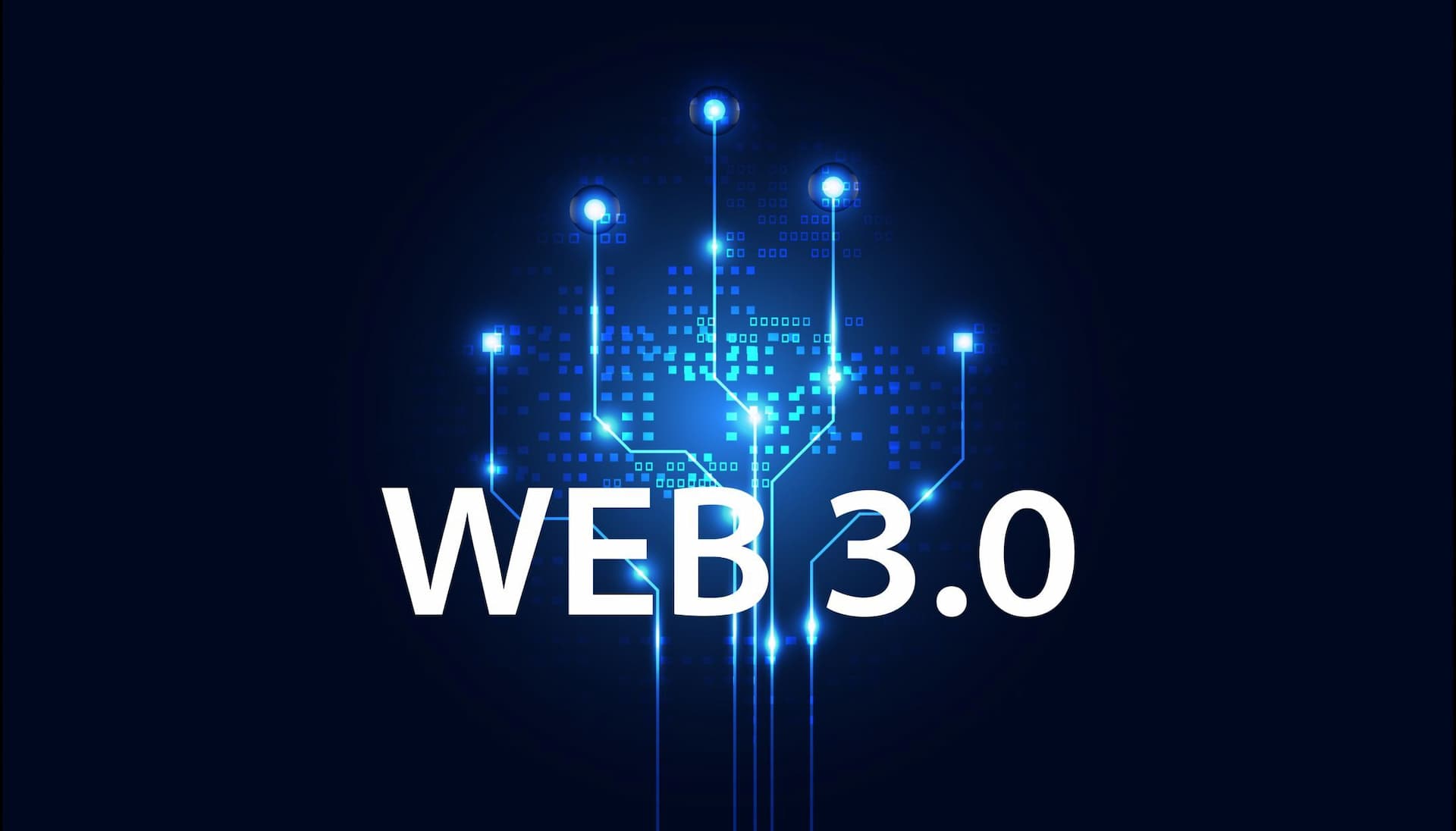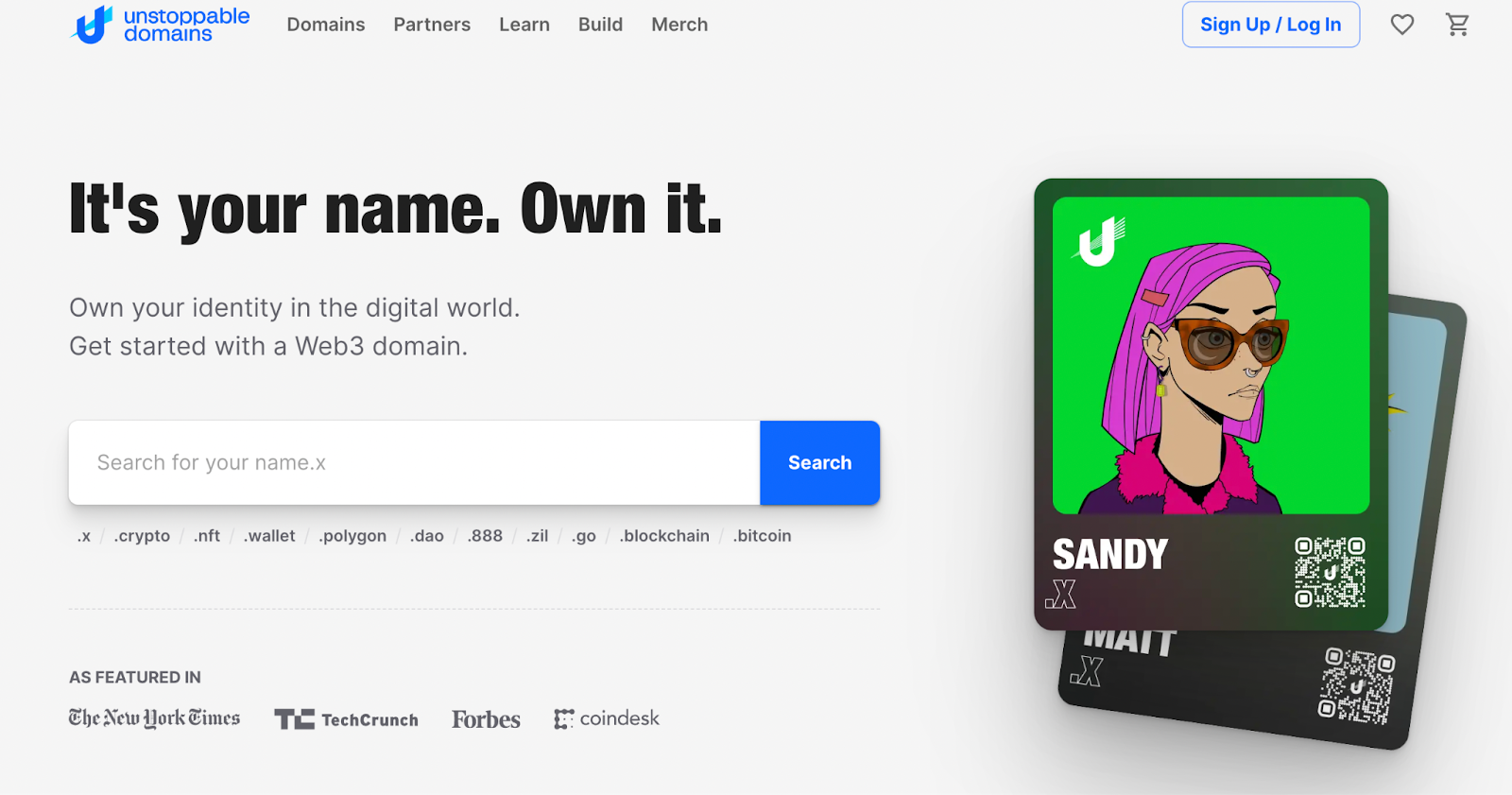
Many project within the crypto and blockchain space have been looking into providing Web2 domains. Given the general problem of Web2 domains, which don’t provide full ownership to its owners Web3 domains are gaining global recognition at a rapid pace, revolutionizing the internet experience by offering a decentralized and secure environment.
By utilizing blockchain technology, Web3 domains offer numerous advantages compared to conventional Web2 domains. A growing number of individuals and businesses are embracing Web3 domains due to their diverse applications and the transformative impact they are expected to have on the future of the internet.
This educational article will discuss what Web3 domains are, and why they are shaping the future of the internet.
Web3 domains explained:
Web3 domains, also known as blockchain domains, are domain names that are registered on a blockchain instead of the traditional centralized domain registrars. These domains utilize blockchain technology, which is a decentralized and secure digital ledger, to manage domain ownership and associated data. The blockchain ensures that domain ownership and records are immutable, transparent, and resistant to censorship.
The issue that Web3 domains are trying to solve is due to the fact that web2 are leased from ICANN with recurring fees, making them not truly owned. In contrast, web3 domains are fully owned, recorded on a tamper-proof blockchain, eliminating central control. Plus, there are no recurring fees; pay once, and it's yours forever. Notably, web3 allows ownership of both second-level domains and even top-level domains (TLDs).
Web3 domains are typically based on blockchain platforms that support the creation of decentralized applications (dApps), smart contracts, and digital assets. Ethereum is a prominent example of such a platform, and it supports various Web3 domain providers.
Key features of Web3 domains, explained in simpler terms:
- Ownership and Control: With Web3 domains, you have complete ownership and control over your domain names. This means you don't need to rely on intermediaries or centralized authorities, which reduces the risk of someone taking over your domain name or censoring your website.
- Decentralization: Traditional domain systems rely on centralized authorities to manage domain registrations. This means that anyone who controls the central authority can manipulate or control the domain system. Web3 domains, however, operate on decentralized networks, which makes them more secure, reliable, and resistant to control or manipulation.
- Interoperability: Web3 domains are designed to be compatible with a variety of blockchain applications. This means that you can easily link your domain name to digital assets, wallets, and dApps without any hassle.
- Privacy and Security: The decentralized nature of Web3 domains provides increased privacy and security. You can manage your personal information and data without relying on third-party entities, which reduces the risk of data breaches or hacks.
3 Notable Web3 Domain Providers
Web3 domains represent a significant shift in the internet landscape, providing enhanced ownership, privacy, security, and resistance to censorship. As more people begin to recognize the potential of Web3 domains and embrace blockchain technology, the internet will evolve into a more decentralized, user-focused, and inclusive space, unlocking numerous opportunities for innovation and growth. Several providers of Web3 domains, such as Unstoppable Domains, ENS, and Handshake are leading the way in this journey.
- Unstoppable Domains
Unstoppable Domains is a Web3 domain provider that operates on the Ethereum blockchain and utilizes the InterPlanetary File System (IPFS). It offers users the ability to create domain names that are censorship-resistant and immutable. These domains serve as human-readable addresses and can store decentralized websites and content.
Image Source: Unstoppable Domains Website
Unstoppable Domains allows for decentralization of domain ownership and control, giving users full control over their domains without the need for any centralized authority. It also facilitates seamless integration with various cryptocurrency wallets, enabling users to associate their domains with cryptocurrency addresses.
- ENS (Ethereum Name Service)
ENS, or Ethereum Name Service, operates on the Ethereum blockchain and allows users to replace complex Ethereum addresses with human-readable domain names. This feature significantly enhances the usability and accessibility of the Ethereum ecosystem by making transactions more user-friendly. ENS leverages the decentralized nature of blockchain technology, ensuring that domain ownership and resolution are secure, transparent, and not controlled by a central authority. Its interoperability with various Ethereum applications and services further enhances its utility and adoption. - Handshake (HNS)
Handshake is a decentralized naming protocol built on its own blockchain. Its primary goal is to revolutionize the traditional domain name system (DNS) by creating a more secure, decentralized alternative. Handshake allows users to register and manage domain names without the need for central authorities, making it resistant to censorship and enhancing security. Users can even create and own top-level domains (TLDs), democratizing the domain space. Handshake incentivizes users to contribute to the network's decentralization by running full nodes and participating in its operation. By rewarding users with HNS coins, it encourages a more distributed and robust DNS infrastructure.
Final remarks
Web3 domains empower users by shifting power from centralized authorities to individual users. This empowerment aligns with the ethos of the internet, promoting freedom, privacy, and equal access to opportunities. Additionally, Web3 domains are highly resistant to censorship due to their blockchain-based nature, ensuring that content remains accessible and unaltered regardless of external pressures or restrictions. They enable a more inclusive internet by providing access to individuals and communities worldwide, even in regions with limited internet infrastructure. Furthermore, the integration of blockchain and Web3 domains creates new economic opportunities through decentralized applications, tokenization of assets, and novel business models.




